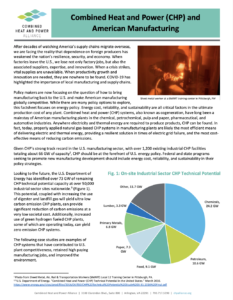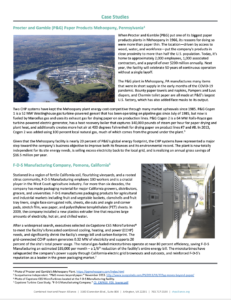After decades of watching America’s supply chains migrate overseas, we are facing the reality that dependence on foreign producers has weakened the nation’s resilience, security, and economy. When factories leave the U.S., we lose not only factory jobs, but also the associated suppliers, expertise, and innovation. When a crisis strikes, vital supplies are unavailable. When productivity growth and innovation are needed, they are nowhere to be found. COVID-19 has highlighted the importance of local manufacturing and supply chains.
Policy makers are now focusing on the question of how to bring manufacturing back to the U.S. and make American manufacturing globally competitive. While there are many policy options to explore, this factsheet focuses on energy policy. Energy cost, reliability, and sustainability are all critical factors in the ultimate production cost of any plant. Combined heat and power (CHP) systems, also known as cogeneration, have long been a mainstay of American manufacturing plants in the chemical, petrochemical, pulp and paper, pharmaceutical, and automotive industries. Anywhere electricity and thermal energy are required to produce products, CHP can be found. In fact, today, properly applied natural gas-based CHP systems in manufacturing plants are likely the most efficient means of delivering electric and thermal energy, providing a resilient solution in times of electric grid failure, and the most cost- effective means of reducing carbon emissions.


